- Home
- Jason Pinter
The Darkness hp-5 Page 15
The Darkness hp-5 Read online
Page 15
“That’s gotta narrow your ten thousand down a bit.”
“Maybe so.”
“Be careful,” I said. “Paulina’s pretty sure this Chester has eyes in the NYPD. Can you do some digging without anyone seeing your shovel?”
“That sounds sexy,” Curt said.
“Come on, Curt.”
“I’ll grow eyes in the back of my head,” Curt said.
“Digging, I can do. But if we find out who this guy is,
I’m going to need to bring Paulina in to ID him so we can charge him.”
“I hear you. But wait until you know who he is for certain before we make a move. And make sure you only tell people you can trust.”
“Yeah, and if you need help typing or proofreading,
I’ll give you a hand. Come on, I know how to do my job,
Henry,” Curt said.
“Just looking out for you, buddy.”
“Appreciate it.”
“How are things, you know, with the job?”
“Strange times, Parker,” Curt said.
“Care to elaborate?” I said, smiling. Curt did not return the pleasantry.
“This city, you know, just a different vibe right now.
People see cops now, they look at us differently. Like they really need us. Not that they ever didn’t, but it’s like the city is waiting for another shoe to drop. You know that dude who lost fifty billion dollars in a Ponzi scheme?”
“Madoff,” I said.
“You know the city spent more money protecting that scumbag than it does Joe Six Pack? People just don’t trust anymore. You know the saying, but it’s true. People expect things are gonna get worse before they get better.”
“The city needs cops like you,” I said. “Protect and serve, right?”
“Yeah, I appreciate that, man. Anyway,” Curt said, standing up, “break time is over. Gotta get back to protecting the rest of this overcrowded island.” He breathed into his hands, then held it up to his nose. “My breath really that bad?”
“Makes my toes curl just talking to you,” I said.
“That’s the way I like it. This way I don’t ever have to pull my gun.”
He held out his hand, and I shook it.
“Later, Henry.”
Curt walked off. I stretched my legs, felt the cup of coffee I’d inhaled half an hour ago take hold. Amanda was probably still in bed, still asleep thanks to her friend the snooze button.
Right as I was about to head toward the subway, my cell phone rang. It was Jack. I knew the man’s mind was always working, but it was not normal for him to be calling me before breakfast, especially when we had no meetings planned.
I answered the phone. “Hey, Jack. Either you’re up early or you’re up really late.”
“Why the hell aren’t you here yet?” Jack said.
“At the Gazette? It’s barely seven, and I was meeting
Curt Sheffield to give him more details about the Kaiser investigation.”
“That’s old news,” Jack said. “Wallace and Harvey Hillerman are about to bite our nuts off, so get your ass over here right away.”
“Why? What happened?”
“Have you seen the cover of today’s Dispatch? ” Jack said.
“No, figured I could wait until getting in before reading about which celebrities were caught in the Dominican
Republic sunbathing in the nude with their boy toys.”
“Laugh all you want, but Henry…we got scooped.”
“Yeah, right. By who? We have every inch of this town covered, so unless I’ve been working in a different city…
By the way, who scooped us?”
“Paulina Cole,” Jack said. “She’s got an exclusive that’ll make your eyes pop out.”
24
I hailed a cab, which slowed to a crawl once we hit midtown. I got out at Fifty-first and Lexington, threw the driver a good tip and sprinted the few blocks over to
Rockefeller Center. I was nearly disemboweled pushing through the security turnstile when my ID failed to work, and got off on the eleventh floor out of breath and with possible internal bleeding.
I entered the newsroom, and as I walked through the sea of desks my heart dropped when I saw Tony Valentine approaching.
“Henry,” he said, huffing as he jogged over. “Do you have a minute?”
“Actually, I don’t. Not right now,” I said.
“Come on, Parker, you’ve been avoiding me since I got here. At some point you’ll need to open that hard heart of yours for a get-to-know-you session.”
“Listen, Tony, I appreciate that, and at some point we will. But right now I have a situation to deal with.”
“A situation? That sounds juicy. Do tell.”
“Like I said, Tony, not right now.”
“Do you have a problem with me?” Tony asked, his eyes narrowing, offset by a strangely playful smile.
“I’m just trying to be a good sport. Fit in with my new colleagues.”
“Listen, Tony, I’d be lying if I didn’t think our two types of…reporting didn’t really overlap. But today there actually is something going on. No joke.”
He looked me over, trying to determine if I was telling the truth or lying just to get out of a conversation. I certainly wasn’t above doing that, at least not with Tony.
That I didn’t have much respect for the profession of gossip columnist was no secret to anyone who’d ever had a conversation with me about the job. I ranked its importance on the Journalism Scale of Importance somewhere between the people who filled up tubes of Wite-Out and telemarketers.
“Fine,” he said. “I’ll take a rain check for today. But at some point I’m going to cash in all my checks and you’re going to have lunch with me.”
I offered a noncommittal nod/shake, and Tony walked away. In the meantime, I had one person who might actually skin me alive if I didn’t answer to him soon.
I arrived at Jack’s desk only to find it vacant. It didn’t take me long to figure out where he’d gone.
The shouting coming from Wallace Langston’s office could be heard throughout the entire newsroom, and reporters who tended to make more noise than the average airbus on takeoff sat dead silent listening to the barrage.
Wallace tended to be a fairly mellow guy. In fact, in my few years at the Gazette, I’d rarely heard him chew a reporter out, rarely saw him get pissed at the copy desk
(if he had, Evelyn Waterstone might have impaled him on one of the flagpoles outside). What really burned Wallace was losing a story to the competition. And since Jack was the newsroom’s elder statesman, he surely took the brunt of it. And since I was partnering with Jack, he no doubt wanted me there to take some of the small-arms fire.
I walked past Wallace’s secretary. She was usually kind to me, always with a good word, but today she looked at me like I was marching right into the sights of a firing squad. I could have sworn she gave me one of those “please, don’t go in there” looks usually reserved for the girlfriend in horror movies who pleads with her man not to go into the basement where the killer is waiting with a machete the size of a guitar.
Sadly, I could not heed her advice, and knocked on
Wallace’s door.
“Who is it?” he yelled from inside.
“It’s Henry,” I said.
“Get the hell in here.”
I gripped the doorknob, took a breath, and hoped
Wallace’s machete was dull.
I opened the door to see Jack seated in front of
Wallace’s desk. Wallace was not seated behind it, as per usual. Instead he was pacing around the room while
Jack’s head swiveled trying to keep pace.
Wallace looked like he’d come in to work properly dressed, hair combed, clothes ironed. But now his graying hair was askew, glasses crooked on his nose. And the pads on his elbows looked like they were being worn away.
“Where the hell have you been?” Wallace said.
“Meeti
ng with a cop about the Kaiser investigation,”
I said. “He’s going to find out what he can about the guy who might be responsible.”
“That’s dandy,” Wallace said. “While you were out pussyfooting with your boys in blue, did you happen to see this?”
He walked over to his desk and picked up a copy of that morning’s New York Dispatch. Wallace stomped over to me, holding the paper much as you would a bag of dog poop. I looked at Jack, wanted to see if he had anything to say, but the old man sat there, head down.
Wallace handed me the paper. “Read it,” he said.
I looked at the front page. Immediately my stomach lurched up to my throat, frustration and anger welling up inside me.
I turned to where the front page article continued, and read the whole thing. Slowly. Word by word. Then I closed the paper and threw it across the room, cursing loud enough that Wallace’s secretary would probably have to apologize to whoever she was on the phone with.
“How the hell did she…” I said.
“Don’t you dare ask that question,” Wallace said. “It’s your job to know what goes on in this city. You handle the crime beat. It is your duty to know every nook and cranny of this island, from the mayor’s office to the bums who live beneath the subway. For something like this to get past you…you must have been asleep at the wheel.”
He looked at Jack, waited for a response. “Either that or the two of you have become so narrow-minded with this
Kaiser murder and Gaines follow-up that you can’t sniff what’s under your nose.”
“I didn’t know anything about this,” I said. “Paulina…I don’t know where she got it. And I don’t know which cops she spoke to, but if you look at the article they all spoke on condition of anonymity. I just met with my man in the NYPD, and he’s as clued in as anyone. He didn’t mention a word of this, and he doesn’t keep things from me. Not like this. Something about this piece doesn’t pass the smell test, Wallace.”
Wallace picked the newspaper back up. He held the cover out for us both to see.
On the front page of the Dispatch was an enlarged picture of what looked like a small stone, possibly a piece of gravel, pitch-black in color with a rough texture.
The headline next to the photo read The Darkness.
The subtitle said, The Drug That’s About to Take Man- hattan Back to the Stone Age.
25
Darkness Rising
As a deadly new drug hits the streets, police and citizens silently fear a return of chaos a quarter century old
Most New Yorkers did not know Kenneth Tsang. The son of Chinese immigrants who passed away before he graduated high school, Tsang received his MBA from Wharton and spent most of his twenties raking in the dough while working at two prestigious investment firms. Most New Yorkers did not know that, despite his income, Tsang owed nearly half a million dollars in taxes and mortgage payments, and that he burned through his money nearly as fast as it came in.
Most NewYorkers know thatTsang was found dead this week, his body pulverized and found floating in the East River. What they do not know is that a balloon marker was tied to the buoy that Tsang’s body was tethered to. They do not know that inside that balloon were half a dozen small, black rocks, left by Tsang’s killer. These rocks were no bigger than a piece of gravel, but each contain enough destructive power to clinch a plastic bag around the head of a city already gasping for air.
Now, come with me for a moment. I have a brief history lesson to impart upon you.
For those of us who lived through New York in the
1980s, much of the information within this article will ring horrifyingly familiar. Let’s backtrack for a minute, about twenty-five years ago to 1984. George Orwell would have been proud. Or terrified.
New York as we know it today did not exist. Following the oil shortage of the 1970s, the Son of Sam murders, and an economy on the verge of chaos, the plumbing system that was New York was about to get hit with a cherry bomb that nearly destroyed it totally.
That cherry bomb was a new drug known to scientists as methylbenzoylecgonine. Or as it is more commonly known, crack.
Crack first appeared on our shores in 1984. Before that, the drug of choice was cocaine. But as cocaine became more plentiful, prices dropped and dealers began to lose much of their profit margin.
Poor them.
So to get back the money they were losing on coke, they came up with a new way to profit. In a nutshell, they used baking soda or other bases to cut the cocaine.
This increased the volume of their product while retaining the same toxicity of the drug. It was the equivalent of taking a dollar bill, mixing it with a few pennies, and turning it into two dollars.
By 1986, just two years after crack hit the streets, over fifty-five thousand people were admitted to emergency rooms around the country with crackrelated injuries (most often this was either from overdosing, or violence which was a result of the drug trade).
For those of you who lived in New York during that time, as I did, the effects of the crack epidemic were as visible as a streetlamp. Crime in this city hit highs never before seen. Murder and rape rates rose dramatically. Cases of aggravated assault skyrocketed from just over 60,000 in 1980 to over 91,000 by the end of the decade. Burglaries. Larceny. Vehicle theft.
New York began to resemble less of a modern, cosmopolitan city than an outpost of Beirut.
Thankfully, this trend reversed itself in the 1990s, and through the new millennium New York has enjoyed its lowest crime rates per capita since the
1960s. New York was known as one of the safest big cities in the country, and if you live here or came to visit, you could walk down the street feeling safe.
After the atrocities of 9/11, New Yorkers banded together to create a safer city. One that reclaimed its place among the grandest in the world. The virus that infected us twenty-five years ago had long been forgotten.
To my horror, though, recent developments have proven that this virus was not extinguished, but had rather been lying dormant, in remission, waiting for a catalyst to revitalize its poisons.
That catalyst has finally found us. And it is not a terrorist, or a crooked financial institution. It exists in the tiniest form possible: a small black rock.
Though the human eye might not register this tiny specimen as anything more than a pebble, a piece of gravel, something that might even pave a driveway, the properties that exist within it threaten the very sanctity of the city we have fought so bravely to protect.
The culprit? A simple black rock that dissolves on your tongue as fast as a breath strip.
Nobody is quite sure where the Darkness came from, who manufactures it, or whether this drug has spread to other states. Crack began in primarily metropolitan cities. New York. Los Angeles. Washington,
D.C. Cities with large urban populations. Cities where there was enough poverty to turn the need of a cheap hit into gold for the men and women whose lack of humanity drove them to produce it.
As of press time, the police had no leads on who deals the drug. A high-ranking member inside the
NYPD did comment, off the record, stating,“We are fully preparing for another epidemic similar to the rise of crack cocaine we saw in the 1980s. Though privately, we’re worried that this one will be much, much worse and have a potentially more devastating impact considering that our infrastructure is already damaged.”
So what’s the harm in a little black rock, you might ask? Why should I care about some idiots getting high?
Because increases in drug production and consumption lead to increases in crime. But here’s where this drug differs: a normal crack user will find successive hits of the drug granting decreasing effects. The hits, as they are, are not as potent.
With the Darkness, however, some insane chemical genius has figured out a way around this.
The human brain produces a certain amount of dopamine, a neurotransmitter often associated with pleasure. Dopamine is released thr
ough many pleasurable experiences, including food, exercise, sex and, of course, drugs. Simple crack cocaine releases a larger amount of dopamine than the brain is accustomed to, so when the user takes a second hit before the brain can replenish dopamine, a lesser amount is released.
Yet the Darkness circumvents this by causing the brain to produce more dopamine. This means that each successive hit will have the exact same impact as the one preceding it, making it more addictive than nearly every drug on the market.
It’s no wonder the cops are nervous. They’re facing streets about to be teeming with a drug that’s cheaper, more plentiful, and delivers, pardon the expression, the best hit money can buy.
God help us all.
26
Friday
The call came close to midnight. Morgan wondered what the hell had taken them so long.
He didn’t recognize the voice on the other line. It wasn’t
Chester, and he didn’t think it was Leonard. Not that it mattered much. He assumed there had to be more to the operation than the two guys he’d met. There were twelve other men in that room-well, eleven after the accident with Jeremy-and they’d all been recruited like him.
Leonard had said that they’d each been recruited by a different person, as Leonard had been brought in by this guy Stephen Gaines. If each new recruit was brought in by a different guy, a la Chester, that meant at least eleven people on Chester’s level.
Morgan wondered just how many people were a part of this organization. Then he wondered how long it might take before he could be promoted, and how much money he’d have to bring in. Didn’t matter. He’d do it.
In his mind’s eye, Morgan could see Jeremy’s lifeless body sliding down the wall, clumps of his blood like egg yolk on the wallpaper behind him. Morgan wished he felt remorseful, wished he felt some sort of sympathy for
Jeremy, but as hard as he tried he simply could not.
When Leonard described what the job entailed, it was a zero sum equation: either you had the sack for it or you didn’t.
Jeremy didn’t.

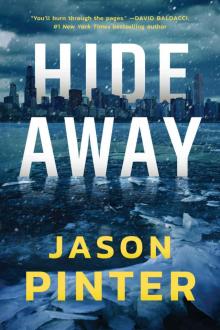 Hide Away (A Rachel Marin Thriller)
Hide Away (A Rachel Marin Thriller)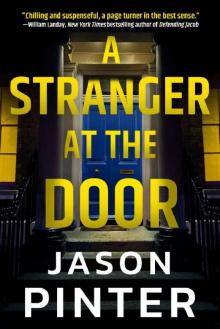 A Stranger at the Door (A Rachel Marin Thriller)
A Stranger at the Door (A Rachel Marin Thriller)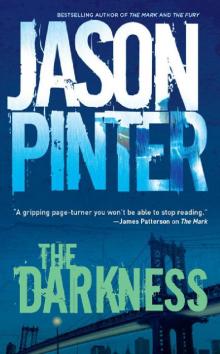 The Darkness hp-5
The Darkness hp-5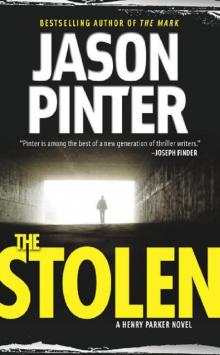 The Stolen hp-3
The Stolen hp-3 The Guilty hp-2
The Guilty hp-2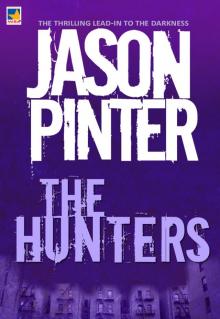 The Hunters
The Hunters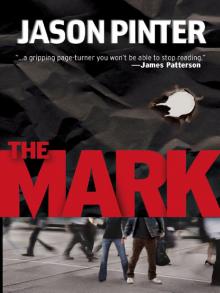 The Mark hp-1
The Mark hp-1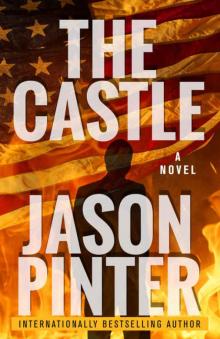 The Castle: A Ripped-From-The-Headlines Thriller
The Castle: A Ripped-From-The-Headlines Thriller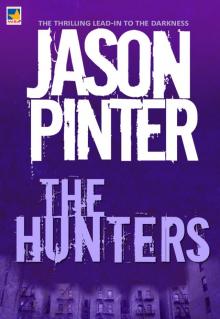 The Hunters (henry parker)
The Hunters (henry parker)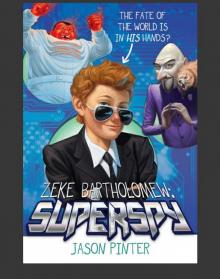 Zeke Bartholomew
Zeke Bartholomew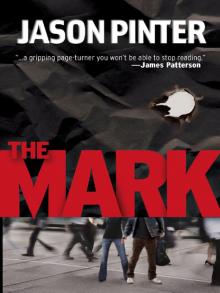 The Mark
The Mark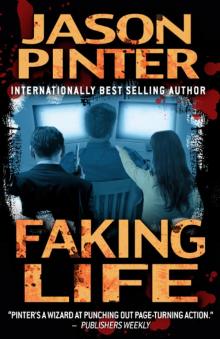 Faking Life
Faking Life![[Henry Parker 01.0] The Mark Read online](http://i1.bookreadfree.com/i2/04/08/henry_parker_01_0_the_mark_preview.jpg) [Henry Parker 01.0] The Mark
[Henry Parker 01.0] The Mark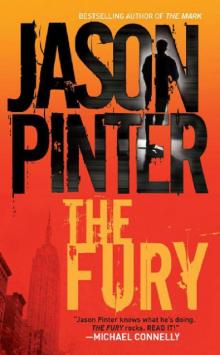 The Fury hp-4
The Fury hp-4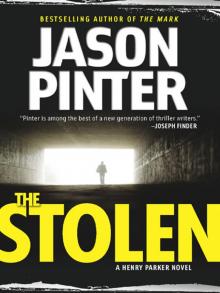 The Stolen
The Stolen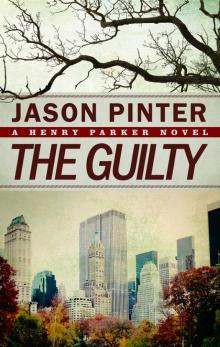 The Guilty
The Guilty